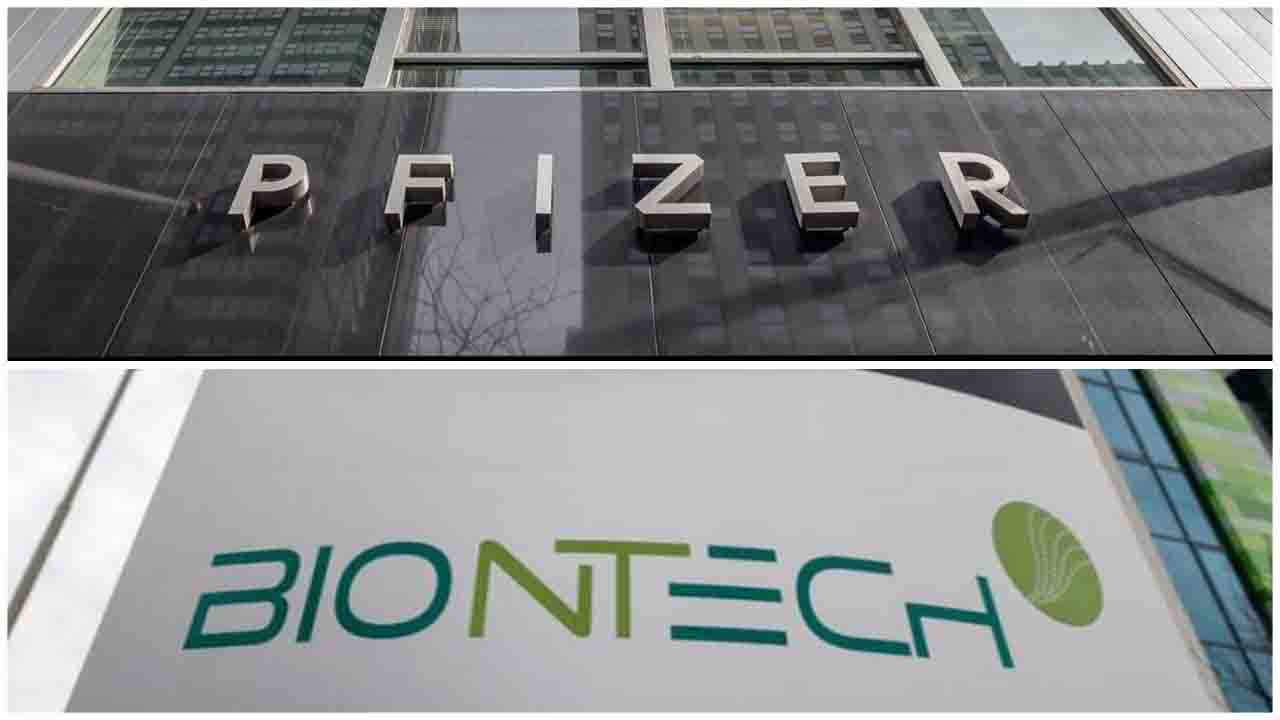Pfizer Inc. and BioNTech SE announced the start of a global (except for China) Phase 2/3 safety and efficacy clinical study to evaluate a single nucleoside-modified messenger RNA (modRNA) candidate from their BNT162 mRNA-based vaccine program against SARS-CoV-2.
After extensive review of preclinical and clinical data from Phase 1/2 clinical trials, and in consultation with the U.S. Food and Drug Administration’s Center for Biologics Evaluation and Research (CBER) and other global regulators, Pfizer and BioNTech have chosen to advance their BNT162b2 vaccine candidate into the Phase 2/3 study, at a 30 µg dose level in a 2 dose regimen. BNT162b2, which recently received U.S. Food and Drug Administration (FDA) Fast Track designation, encodes an optimized SARS-CoV-2 full length spike glycoprotein (S), which is the target of virus neutralizing antibodies.
“Our selection of the BNT162b2 vaccine candidate and its advancement into a Phase 2/3 study are the culmination of an extensive, collaborative and unprecedented R&D program involving Pfizer, BioNTech, clinical investigators, and study participants with a singular focus of developing a safe and effective COVID-19 RNA vaccine. The Phase 2/3 study protocol follows all the U.S. Food and Drug Administration (FDA) guidance on clinical trial design for COVID-19 vaccine studies,” said Kathrin U. Jansen, Ph.D., Senior Vice President and Head of Vaccine Research & Development, Pfizer. “The initiation of the Phase 2/3 trial is a major step forward in our progress toward providing a potential vaccine to help fight the ongoing COVID-19 pandemic, and we look forward to generating additional data as the program progresses.”
“Today, we are starting our late-stage global study, which will include up to 30,000 participants. We selected BNT162b2 as our lead candidate for this Phase 2/3 trial upon diligent evaluation of the totality of the data generated so far. This decision reflects our primary goal to bring a well-tolerated, highly effective vaccine to the market as quickly as possible, while we will continue to evaluate our other vaccine candidates as part of a differentiated COVID-19 vaccine portfolio,” said Ugur Sahin, M.D., CEO and Co-Founder of BioNTech. “Many steps have been taken towards this important milestone and we would like to thank all those involved for their extraordinary commitment.”
About the Phase 2/3 Study
Pfizer and BioNTech finalized the Phase 2/3 study protocol in response to feedback from global regulators, including the FDA and the German Paul-Ehrlich-Institut. The Phase 2/3 study is an event-driven trial that is planned to enroll up to 30,000 participants between 18 and 85 years of age. The companies plan to enroll in a diverse population, including participants in areas where there is significant expected SARS-CoV-2 transmission.
The Phase 2/3 trial is designed as a 1:1 vaccine candidate to placebo, randomized, observer-blinded study to obtain safety, immune response, and efficacy data needed for regulatory review. The trial’s primary endpoints will be prevention of COVID-19 in those who have not been infected by SARS-CoV-2 prior to immunization, and prevention of COVID-19 regardless of whether participants have previously been infected by SARS-CoV-2. Secondary endpoints include prevention of severe COVID-19 in those groups. The study also will explore prevention of infection by SARS-CoV-2, the virus that causes COVID-19. The primary efficacy analysis will be an event-driven analysis based on the number of participants with symptomatic COVID-19 disease. The trial design allows for interim analyses and unblinded reviews by an independent external Data Monitoring Committee.
By the end of the trial, the Phase 2/3 study is expected to be active at approximately 120 clinical investigational sites around the world, including 39 states across the United States and countries including Argentina, Brazil, and Germany. Investigator sites are selected based on factors including scientific expertise and capabilities, the epidemiology of the disease, and prior experience conducting clinical trials.
Pfizer and BioNTech are committed to decreasing health disparities in underrepresented populations through the clinical trial process. To that end, many investigator sites are in diverse communities that have been disproportionately affected by COVID-19 so that individuals who have been most impacted have the opportunity to participate. The companies are also working together with investigator sites and advocacy partners to raise awareness about the importance of participation in this trial.
BNT162b2 remains under clinical study and is not currently approved for distribution anywhere in the world. If the Phase 2/3 trial is successful, Pfizer and BioNTech expect to be ready to seek Emergency Use Authorization or some form of regulatory approval as early as October 2020. If authorization or approval is obtained, the companies currently aim to supply globally up to 100 million doses by the end of 2020 and approximately 1.3 billion doses by the end of 2021.

 Pfizer and BioNTech choose lead mRNA vaccine candidate against COVID-19 and Pivotal Phase Global Study
Pfizer and BioNTech choose lead mRNA vaccine candidate against COVID-19 and Pivotal Phase Global Study











.jpeg)

.jpeg)
.jpeg)

.jpeg)


.jpeg)



.jpeg)
.jpeg)
.jpeg)


.jpg)


.jpeg)
.jpeg)